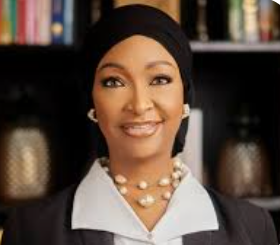Minister of Art, Culture and Creative Economy, Hannatu Musawa, is facing scrutiny once again after being accused of earmarking N290 million from her ministry’s 2024 budget for solar street lights in her hometown in Katsina State.
She is also facing allegations of allocating a staggering N300 billion naira for Culture Research and Development in the 2024 ministry budget, sparking concerns about the disproportionate funding and potential misallocation of resources.
A May 22, 2024 story published by Daily Trust Newspapers, indicated that Minister Musawa allocated N290 million for street lights in her home Local Government Area which has no correlation whatsoever with the activities of the ministry.
Reacting to the Daily Trust story, the Permanent Secretary in the Ministry of Arts, Culture and Creative Economy, Mr James Sule, said the project is a strategic one.
However, industry watchers got peeved with the position of the Permanent Secretary failed to disclose the cultural jobs, culture attractions and the emerging innovations that the project will contribute to Gross Domestic Product of the nation.
It was gathered that prior to this current crisis rocking the ministry, Musawa had used her appointees to falsely lay claim to culture projects done by the immediate past administration and now have resorted to deploy a tested technocrat like her Permanent Secretary to accuse Daily Trust of alleged misinformation on the budgeted Solar lights to be domiciled her Local Government.
A staff of the ministry who spoke on condition of anonymity said; “If all our ministers, agency heads, and legislators now compete to domicile constituency projects exclusively in their Local Government Areas, other areas in Nigeria that did not have no ministers will end up without projects such as roads, lights, railway, hospitals, airports and etc.
“What a clever way to practice nepotism and misappropriation in the name of budgeting for constituency projects”.
The same Minister Musawa was embroiled in NYSC status scandal which a Court in Abuja eventually ruled that she does not need to serve to get appointed as a member of the Federal Executive Council (FEC).





























